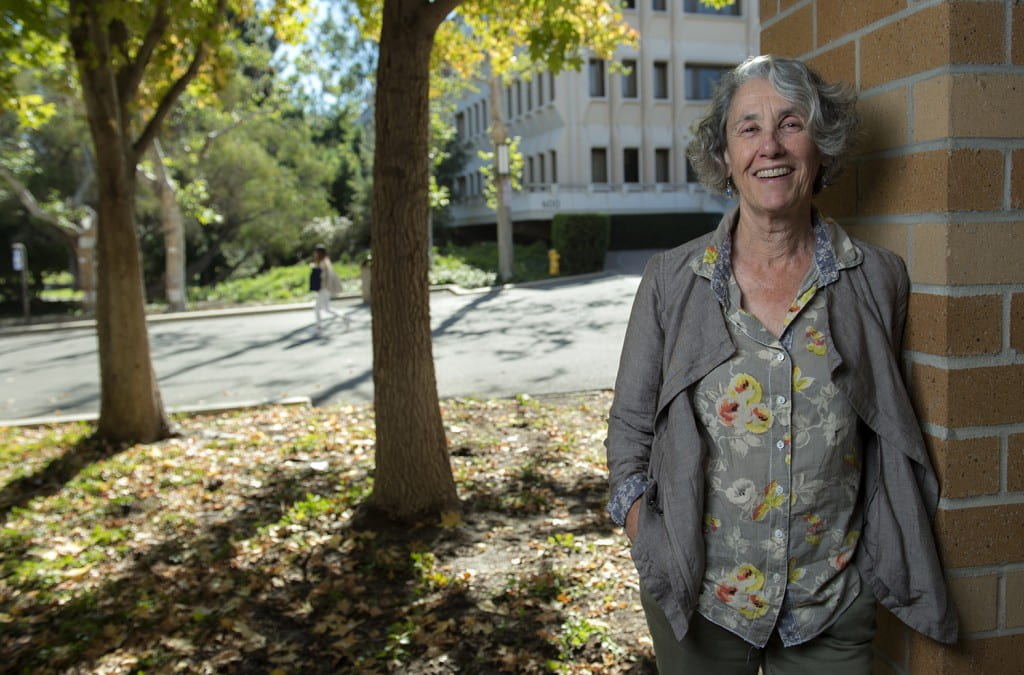Setting the historical record straight
Book co-written by UCI history professor reinterprets Colonial New England practice of ‘warning out’ strangers

In Colonial Boston, more than a century before the U.S. Border Patrol sputtered to life, a beer-swilling Irish immigrant named Robert Love made a career out of finding newcomers and warning them that they had two weeks to leave town.

University of Pennsylvania Press
But Love and his bosses rarely deported anyone, says Sharon Salinger, a University of California, Irvine history professor who co-authored Robert Love’s Warnings, an award-winning look at early New England’s treatment of outsiders.
Instead, most of the people Love targeted – a mishmash of migrant workers, discharged soldiers, beggars and even one infant – remained free to live, work, marry and buy houses in Boston.
The main purpose of an exit warning was to absolve the city of financial responsibility if a new arrival wound up in the poorhouse. Legal Boston inhabitants who fell on hard times were covered by the town treasury. Outsiders who needed aid were paid for by the Province of Massachusetts Bay.
Before Salinger’s book, which was co-written with Cornelia H. Dayton of the University of Connecticut, historians had assumed that all get-out-of-Dodge warnings were harshly enforced by New England authorities.
But Love’s detailed records – which Salinger chanced upon in a pile of diaries as she researched a book on taverns and drinking in Colonial times – told another story. The notebooks also offered a fascinating portrait of life in pre-Revolutionary War Boston, a town of about 16,000 people.
Over a nine-year stretch, Love issued departure decrees to nearly 4,000 newcomers. Many were teenagers seeking apprenticeships and short-term jobs in the big city before returning to their villages to marry and settle down, Salinger says. Others included the wives of British soldiers involved in the Boston Massacre. The women were left behind when their husbands fled town in fear. Love found one of the wives penniless and scavenging for dandelions to make tea, according to Salinger.
Like his prey, Love was also a transplant. Originally from Ireland, he first settled in Maine, where he worked on his brother’s farm until being kidnapped and held for ransom by Indians. After plunging into debt to pay back the ransom money, he moved to Boston and worked as a tailor and liquor salesman before town officials hired him to ferret out foreigners “of low circumstances.”
Deciphering Love’s reports was a laborious task, Salinger says. Because his writings predate the first American dictionaries, they were loaded with strange and phonetic spellings, she says. From there, Salinger and Dayton spent years researching the cast of characters Love encountered, using various historical records.
The result is a book that “made the streets of Colonial Boston come alive in ways no other scholar has done,” says Alfred F. Young, author of The Shoemaker & the Tea Party: Memory & the American Revolution.
Earlier this year, Robert Love’s Warnings won awards from the Organization of American Historians and the American Historical Association.
Salinger, who also plays bassoon in UCI’s symphony orchestra, is now working on her next project: a study of how explorer diaries and other published writings in 16th– and 17th-century France shaped that nation’s perception of Indians in the New World.